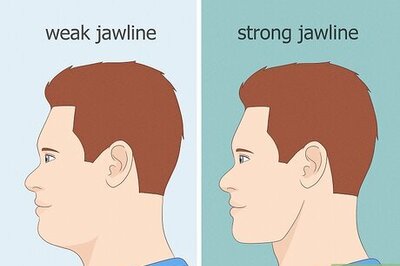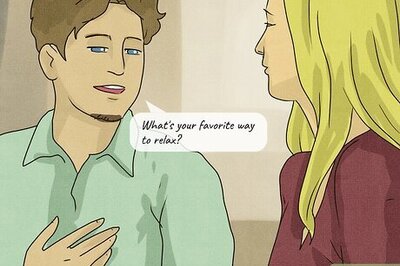
views
Seattle: "What they see is what you get," fashion consultant Georgia Donovan told the Sotheby's staff in her talk entitled "Appearance Matters."
She expanded on the point with examples of how differences in geographic location, age, generation, and body language can be factors in how others treat us.
Try getting attentive service at Gucci wearing grungy cut-off shorts, a tank top, and flip-flops; you'll see what she meant. The power of her words hit home on a recent business trip to Washington, D.C.
During check-in, a handful of airline personnel and fellow travellers complimented me on wearing a suit. Everybody treated me especially well. (It's fair to tell you that given the travails of flying, I really wanted to wear jeans and a T-shirt, but I was travelling on business, as the face of my company, and I wanted my appearance and mindset to reflect that.
My treatment, as it turned out, was a fringe benefit of that decision process.)
Fast forward to Washington, where I gave a speech on professionalism to a conference of women doctors. After my program, I strolled the grounds of the hotel to unwind. One woman caught my eye because she looked so jaunty and professional. Then I realized that I owned the same dress she was wearing.
Assuming that she was part of my group, I stopped her to tell her how swell she looked, and explained why I said so. We both had a laugh.
In fact, she was Colleen Lyons, principal of EthicalStability, a corporate consulting firm. She specializes in ethics; I specialize in professionalism. We obviously had a lot in common.
I wondered if, had she been wearing flip-flops, a baggy shirt, and jeans, I would have felt so drawn to her energy and demeanour. I doubt it. Not fair yet very true.
As shallow as this might sound, it was the clothes that brought us together. Both of us were in work mode, and made judgments about each other based on what we saw. What's the practical lesson here?
For me, the experiences were a reminder to ask myself the same questions actors ask when they prepare to inhabit a role: Who Am I? Where Am I? Who Is My Audience? What Do I Want Them to Feel?
In the case of my trip to D.C., I was a paid expert on professionalism, in a relatively conservative business environment, speaking to a group of professional women in an effort to help them grow their careers. Following that checklist, I hit a home run with my audience-both at the conference and on the plane.
But business today is conducted on a variety of levels: peer-to-peer, service provider-to-client, employee-to-potential employer and employer-to-valued potential team member.
And we now see an unprecedented four generations in the workplace all at once. Although for the most part hiring decisions are made by people over 30, different generations see things differently.
We find ourselves making decisions filtered through our perception lenses, somehow trusting that business success will proceed in alignment with them.
I wonder, though, what judgments Millennials make about us as they interview for jobs that so often elude them? So I asked one. Johanna Weber is part of that frustrated group. With her brand new degree in visual communications, and as a part-time window display coordinator.
"I relate to my interviewer if she is wearing something familiar to me, something I am used to seeing, even if I would not wear it myself," Weber said. "Maybe it's a classic pantsuit or tailored, high-waisted skirt. First impressions are a two-way street. I think this is true for men, too."
Ms. Weber's perceptions and my own experience with Ms. Lyons are a corollary to Ms. Donovan's sage advice. As in personal relationships, people in business are often drawn to characteristics of you that they see in themselves.
While we can't necessarily control that, we can do worse than form business relationships with those whom we feel compatibility or kinship. More importantly, no matter how hard we try to present the most appropriate business image, we'll never be successful if we lose our authenticity in the process.
Forcing yourself into heels you really can't walk in is an obvious example. But it can be something more subtle, yet significant to you. Whether it's a colour you feel more comfortable in, or allowing your sense of humour to shine through, the confidence you experience in being genuine will be your most important asset.
The bottom line? Wherever we are, everything we put on represents a choice we've made about how we want others to perceive us, and treat us. And if we know what's good for us, we'll do some homework and choose carefully. But stay true to yourself. You never know "what you'll get."


















Comments
0 comment